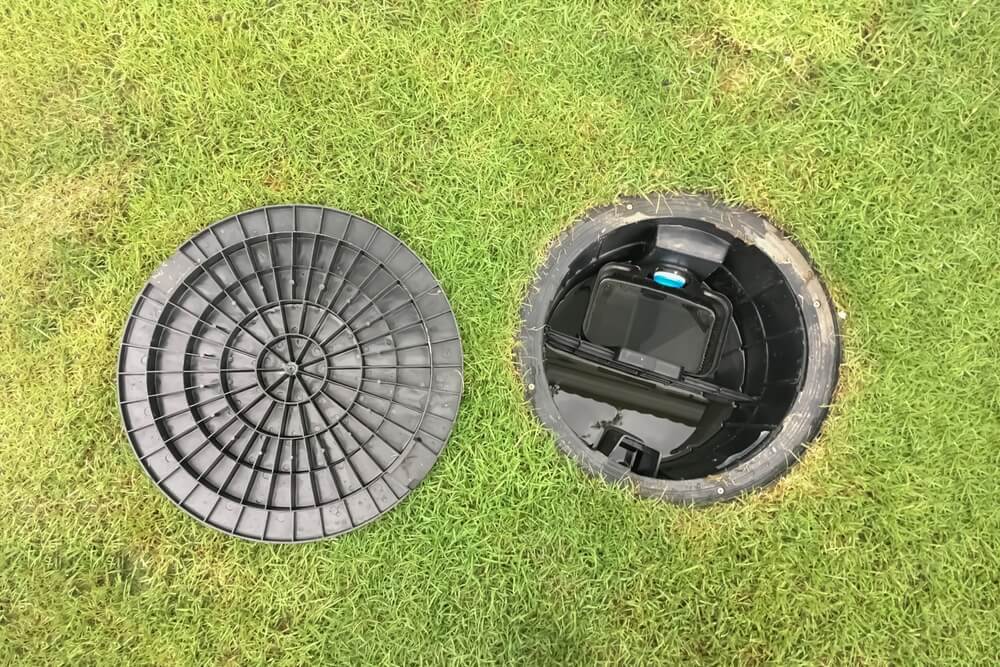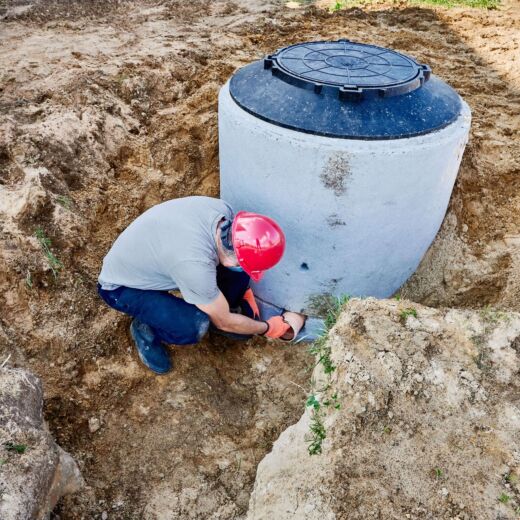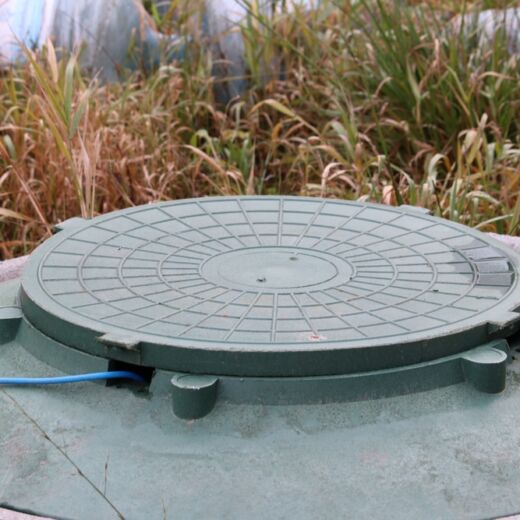If you have a septic system on your property, you’ve likely heard about septic alarms, but how much do you really know about them? A septic tank alarm is an essential component of a home’s wastewater system, designed to alert homeowners when the septic tank reaches critical levels. Understanding how septic alarms work is a big part of protecting your rural home’s plumbing, preventing costly repairs, and maintaining a healthy septic system.
In this guide, we’ll look at the mechanics of septic tank alarms, explore common issues, share valuable troubleshooting tips, and answer the question: How does a septic alarm work?
What Is a Septic Alarm and Why Is It Important?
A septic alarm is a critical safety device installed as part of your septic system’s pump tank or dosing chamber. Its primary function is to alert you when there’s a problem with the wastewater levels inside your tank—typically when the liquid level rises too high due to pump failure, clogging, or other malfunctions.
Without a septic alarm, a high water level could go unnoticed, leading to:
- Sewage backups into your home or yard
- Damage to the septic system’s components
- Environmental contamination
- Costly repairs or premature system replacement
In short, a septic alarm acts as your early warning system, giving you time to take action before minor issues escalate into major problems.
How Does a Septic Alarm Work?
Understanding how septic alarms work starts with knowing the key components involved—mainly the pump tank and the sensors or float switches that monitor liquid levels.
Normal Operation
Wastewater enters the septic tank and gradually fills it. When the liquid reaches a certain level, the pump turns on to move the effluent to the drain field. This brings the water level back down to normal.
Monitoring Levels
Sensors or float switches inside the pump tank constantly monitor the liquid level. They’re set to detect when the level gets too high—beyond what’s considered safe.
When the Alarm is Triggered
If the pump doesn’t activate (due to a malfunction or heavy inflow), the liquid continues to rise. Once it exceeds the high-level threshold, the sensor or float activates the alarm.
Alerting the Homeowner
The alarm typically includes a loud buzzer or siren accompanied by a flashing light. This alarm immediately signals that the septic system isn’t working properly and needs attention.
Next Steps
Stop using water as much as possible—hold off on washing laundry and spread showers out throughout the day. Contact a septic service professional for an inspection and repairs. Taking action quickly can prevent overflows and more serious system damage.
Types of Septic Alarms
There are a number of types of septic alarms. The one you choose will depend on your system and its requirements:
Float Switch Alarms
This is the most common type of alarm. It uses mechanical floats that rise with the wastewater. When the float reaches the alarm level, it triggers the alarm.
Electronic Sensors
These septic alarms use electronic probes or pressure sensors to detect water levels. They are often more precise and prone to mechanical failure than float switches.
Wireless Alarms
Some modern septic alarm systems offer wireless alarms that can send notifications directly to your smartphone or email, providing greater convenience and peace of mind.
Common Causes for Septic Alarm Activation
Knowing how septic alarms work also means understanding what triggers them. Some common causes include:
- Pump Failure: The pump motor can fail due to electrical issues, worn-out parts, or motor burnout.
- Clogged Pump: Solids, grease, or debris can clog the pump or inlet pipes, preventing proper effluent flow.
- Power Outage: If the pump relies on electricity, a power failure will stop the pump, causing wastewater levels to rise.
- Float Switch Malfunction: The float switch may become stuck or damaged, resulting in false alarms.
- High Water Usage: Sudden spikes in water use can overwhelm the pump’s capacity. This could be due to having company staying with you or hosting large events.
Troubleshooting Tips for Septic Alarms
If your septic alarm goes off, here are some immediate steps you can take:
- Check the Alarm Panel: Locate the alarm panel. It’s usually located near your septic tank or inside your home, and press the silence or reset button to temporarily stop the noise.
- Inspect the Float Switch: Open the tank cover and carefully inspect the float switch or sensor to see if it’s stuck or tangled in debris. Be sure to replace the tank cover when you’re done.
- Verify Power Supply: Ensure the pump and alarm have power. Check circuit breakers or fuses.
- Reduce Water Usage: Limit water consumption to avoid overloading the system until a professional arrives to treat the issue.
- Call a Septic Service Professional: Septic alarms indicate a serious issue that requires expert diagnosis and repair.
Maintenance Tips to Keep Your Septic Alarm Working
Preventive maintenance helps your septic alarm and system work reliably.
- Perform Regular Tests: Like your smoke detectors, it’s essential to ensure your alarm is functioning properly. Most systems allow you to manually test the alarm by lifting the float to simulate a high water level.
- Schedule Routine Inspections: Have a professional inspect your system annually, particularly after winter.
- Pump It Out: Depending on usage and tank size, your septic tank may need to be pumped every three to five years to prevent solids from building up.
- Be Careful With What You Flush: Never flush grease, wipes, or chemicals that can damage the pump or clog sensors.
- Keep the Alarm Panel Clean and Accessible: Ensure the alarm control panel remains dry and dust-free.
Don’t Ignore It—Call Septic Medic!
Now that you understand how septic alarms work, it’s important that you don’t ignore it. These alarms act as an early warning system, alerting you to potential issues before they become major repairs and costly problems.
If your system requires an inspection or repairs, or if you’d like more information about septic system alarms, contact Septic Medic. Our team of experts is here to keep your system running smoothly and stress-free.




